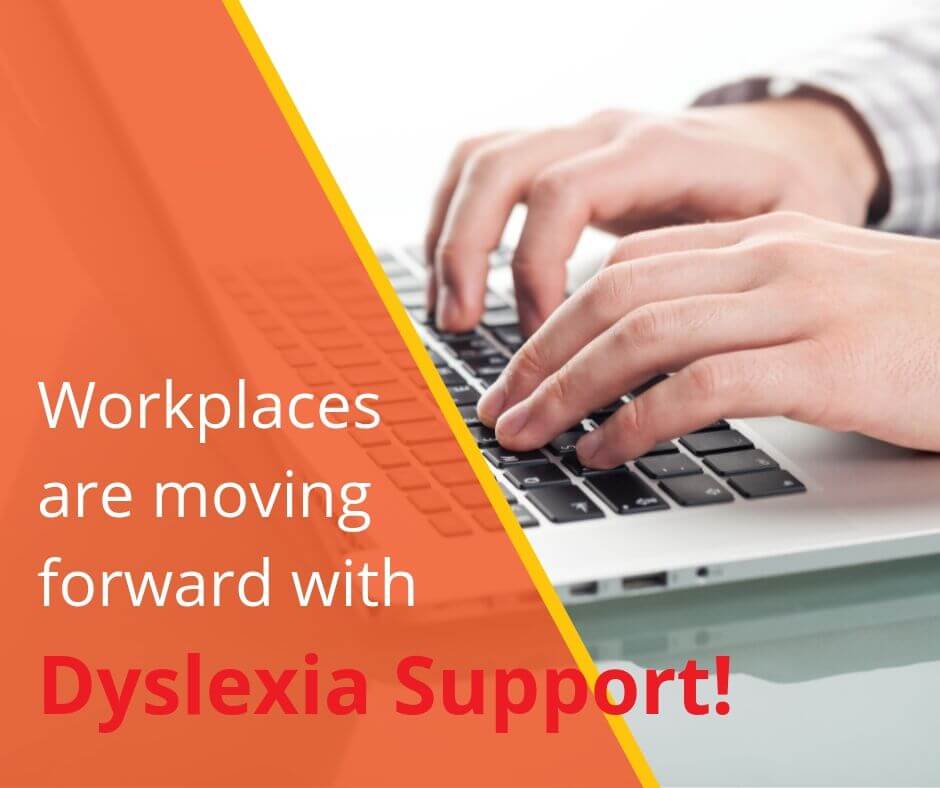With some 10% of people affected by dyslexia – the provision for employees has recently been described as ‘patchy’.
But some employers are now pushing things forward. Workplaces are carrying out dyslexia screening at the recruitment and training stages. Resulting in employees with dyslexia being supported right from the beginning.
BBC Article
This point was well demonstrated by BBC Global news presenter Mauro Galluzzo in his article on Wednesday 3 July. We believe this is such an important topic and we want to share a section of the article with you, see below: ÂÂ
In the UK, even faced with shrinking budgets, some public services are investing in technology which is proving successful.
Hampshire Police, for example, are actively embracing assistive technologies and adjustments for workers with dyslexia as part of their working day.
These include coloured hard-backed exercise books to help officers track words on the page in interviews; coloured overlay screens to make reading easier on computers; smart pens for meetings, which can record audio and digitise notes; extra time for paperwork, exams and assessments; and a quiet room to avoid distractions.
Making workplaces more inclusive
Hampshire Police also carry out screening at the recruitment and training stages so employees with dyslexia can be supported right from the beginning.
Inspector Peter Phillips, who leads the programme, says that this support “needs to be specific and bespoke to the individual (as their dyslexia can be very different to anyone else’s) and their role.†The benefits include “improved attendance (reduced stress and anxiety) and improved performance (increased confidence in their own abilities)â€Â.
Thomas Smith, who works in the Hampshire Police control room, had no idea he was dyslexic until he started working for the police three years ago.
“I’ve spent my whole life assuming I was slow or stupid,†he says.
“My job for the police requires me to concentrate for most of my day. I need to remember numbers, sequences, code and acronyms. Trying to juggle all of these words and numbers sometimes means they get mixed up. Now I’ve been diagnosed it has helped me understand myself. My dyslexia still owns me but it is not who I am.â€Â
Tapping creative potential
Margaret Malpas from the British Dyslexia Association adds: “There is no doubt for me that the dyslexic brain, with its different way of processing information, confers specific talents such as greater creativity of thought, that isn’t to say dyslexia makes you a genius or vice versa…â€Â  ÂÂ
“The best way to foster the talent in people with dyslexia is to identify it early and provide tailored support. With the right support, the dyslexic mind has amazing potential.â€ÂÂÂ
Has your workplace supported your dyslexia? We can provide you with a QuickScreen Dyslexia Test. Which is just 1 hour long and will give you a comprehensive report of your results and recommendations for support.ÂÂ
Or as an organisation are you supporting your staff? If you’re wondering where to begin… we offer an online dyslexia assessment for organisations. This assessment is used by Universities, Colleges, armed forces, the public sector, family services and other businesses and organisations. ÂÂ
If you have any questions please contact us – we’d be more than happy to assist with your queries.ÂÂ

